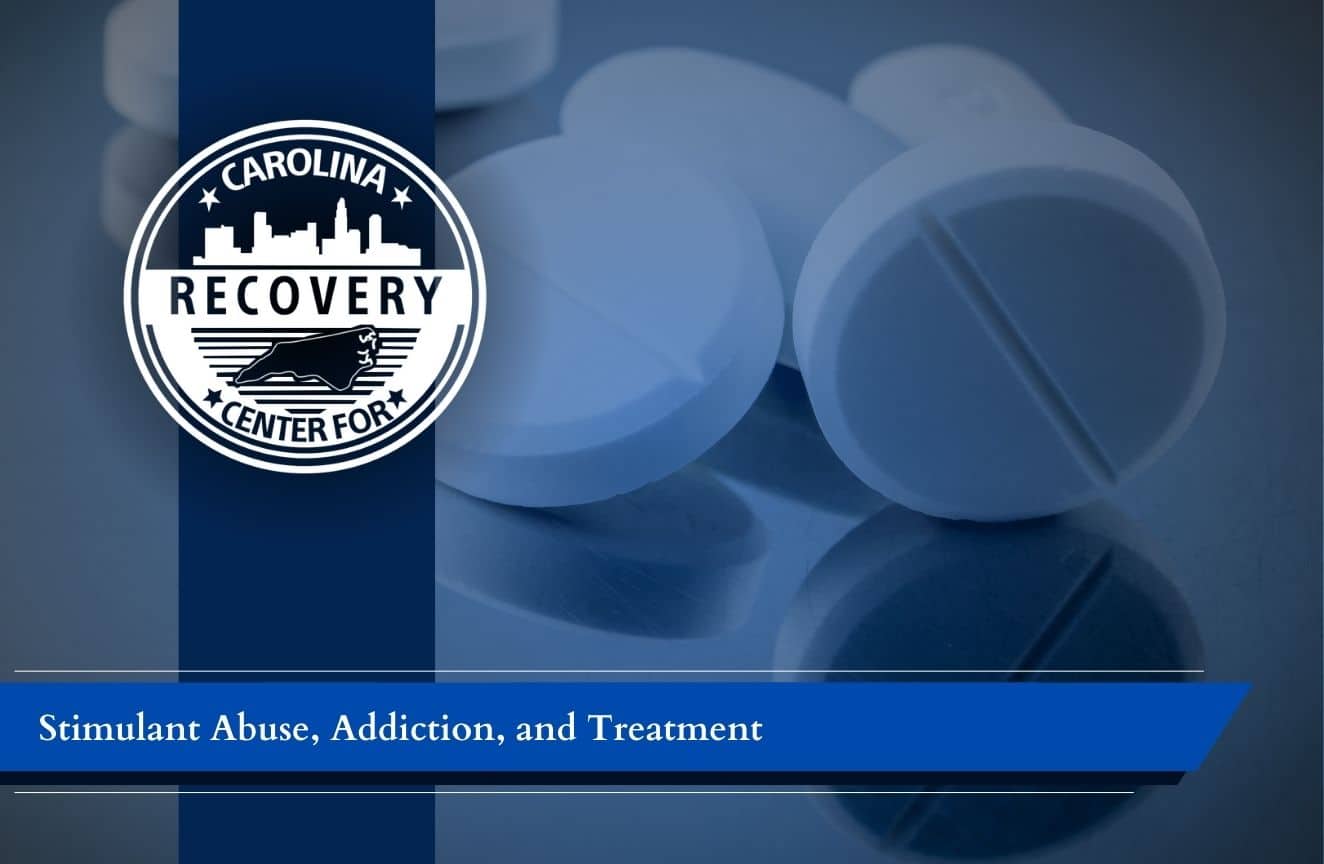


Millions of people in the United States use prescription stimulants to manage a health condition. Stimulant drugs can reduce the symptoms of attention-deficit hyperactivity disorder (ADHD) and other conditions. They can help people with these conditions function and feel better.
However, many prescription stimulants are addictive. People who misuse them are at risk of developing physical dependence and addiction.
It’s essential to understand the risk of stimulant addiction and seek treatment as quickly as possible. This article will provide an overview of stimulant abuse and addiction. You will also learn how to identify stimulant addiction and where to seek treatment.
Contact the Carolina Center for Recovery team to learn about our addiction treatment programs. Our knowledgeable specialists will verify your insurance and help you schedule an intake assessment.
Stimulants work by increasing central nervous system (CNS) activity. People who take prescription stimulants to treat ADHD have fewer disruptive symptoms.
People who take these drugs recreationally (without a prescription) experience common side effects like:
Common prescription stimulants include:
Some illicit drugs are stimulants. These include:
People may enjoy the effects of stimulants. They may want to take more. Over time, your body can develop tolerance to stimulants. This means that you need to take more to get the desired effects.
One of the most significant risks of stimulant abuse is physical dependence. Long periods of stimulant abuse change how the brain and body function. These changes can make it very challenging to stop using stimulants. People with stimulant addiction often continue to abuse these drugs, even when they cause significant harm.
People who develop dependence on stimulants may experience long-term consequences and require treatment to quit using them.
Recognizing stimulant use disorder early can help you start recovery sooner. Stimulant abuse changes how people act, think, and feel. Knowing what to watch for can let you identify stimulant abuse and get help.
Some common signs and symptoms of stimulant abuse include:
Teens and young adults are more likely to abuse stimulants and develop stimulant addiction. It is crucial to be aware of the signs of stimulant abuse and seek treatment as quickly as possible.
Addiction treatment is not a one-size-fits-all process. Treating stimulant addiction requires comprehensive, tailored treatment plans.
Addiction treatment programs are available in inpatient and outpatient settings. Your course of treatment will vary depending on your progress.
Here is an overview of what to expect during a stimulant addiction treatment program.
Before you start treatment, a doctor or addiction specialist will evaluate your needs. This evaluation may include:
The information from this evaluation will allow your team to provide tailored treatment at every stage of your recovery. It will also help the medical staff determine if any issues may complicate detox.
If you have a physical dependence on stimulant drugs, you will likely experience withdrawal symptoms when you stop taking them. Stimulant withdrawal symptoms include:
During detox, your treatment team will assess your symptoms around the clock. They will provide treatment to keep you safe and comfortable throughout detox.
Treatment for stimulant detox includes:
Participating in a detox program increases your likelihood of having a complete detox. Then, you must continue treatment in a comprehensive rehab program.
Comprehensive stimulant addiction rehab programs provide treatment and support for your body and mind. Your treatment team will reassess your needs throughout the program and adjust your plan as needed.
Stimulant addiction treatment plans include:
A holistic treatment program can help you stop using stimulants and learn how to avoid relapse. It will also give you the support you need to stay committed to sobriety after completing treatment.
If you or someone you love struggles with stimulant abuse or addiction, effective treatment is available at the Carolina Center for Recovery. Take the first step of your recovery journey by contacting us now.